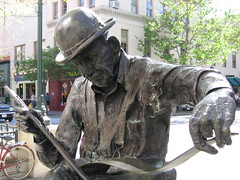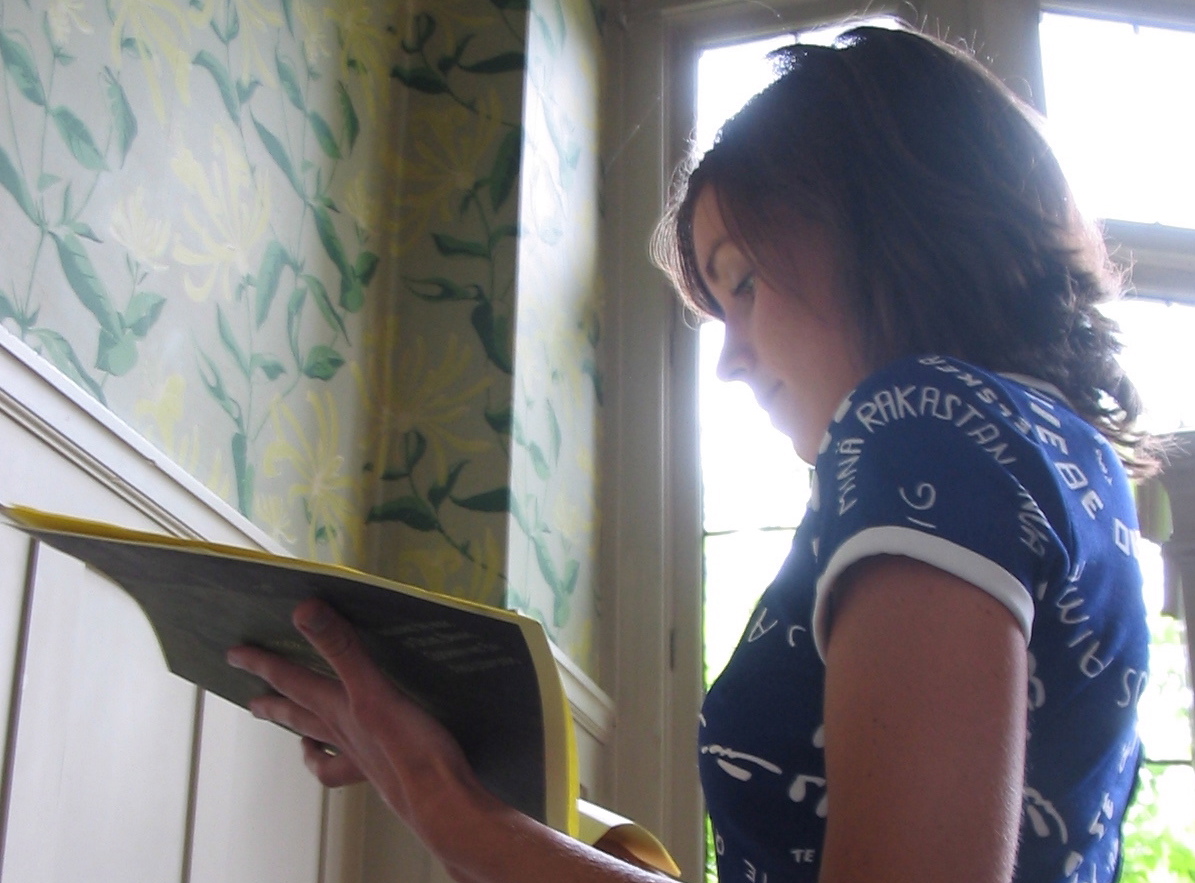Maimed!
Now, lying on a gurney in the emergency room, she looks longingly at the jewel case: Anne Sofie von Otter & Bengt Forsberg: Folksongs by Dvorak, Kodaly, Britten, Grainger, Larsson and Hahn (purchased for the Grainger, nacht). Reading through the glossy booklet, she has a brilliant idea and scans the emergency room: someone must have a CD player. A laptop?
A laptop. Her eyes roll back in her head. If only she had her beloved laptop, with its 963 songs (8.48 GB). What would she listen to first? Her usual daily pick-me-up, the overture to Marriage of Figaro? Or maybe, she clenches her teeth thinking of that damn little meme, her favorite Dylan tune, "Don't Think Twice, It's Alright," so full of pessimism and bile. She realizes she will not be able to drive in to the city for mass this weekend and will miss KPFA's weekly airing of the duet from Bach's Cantata number, number...oh god, the accident has jarred her memory. She chokes back a little sob and wishes that someone with a sense of humor would play either the title track to Once Upon a Time in the West or Fantomas' version of "Charade" over the hospital P.A. system. As it is, the entire day passes without a single song; her audio experience is a miserable attempt to pastiche some kind of musique concrete from the beeps of the intercom, the opening and closing of elevator doors, and what must be someone's ventilator in a nearby room.
The nurse comes over with forms for her to sign; they want five names, insurance, a ride home, some such nonsense. It is becoming difficult to think. She scrawls Willie, Steed, and Anne, and her hand twitches. The nurse mumbles something about nerve damage. Don't they understand? She is a pianist. Who will play Once Upon a Mattress next week? Think Denk. Her whole arm jerks. Her gaze rests on the still to be heard von Otter disk and she manages to scribble Anne Carolyn Bird across the bottom of the form. Though she feels it beginning to wind around her neck, she can not do anything about the drool. She is embarrassed. Then, gratefully, everything fades away.
A memorial service will be held. Please eat chocolates.
continue reading...





